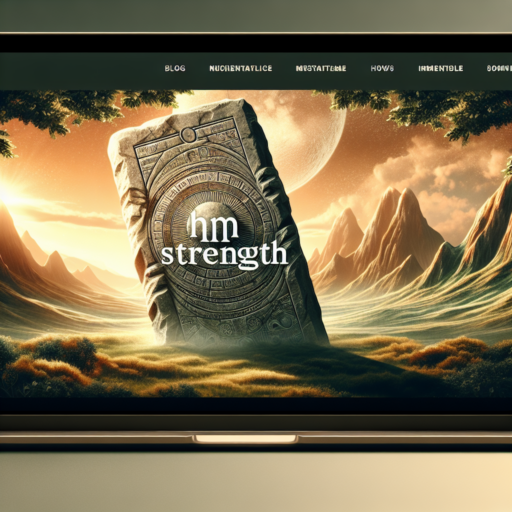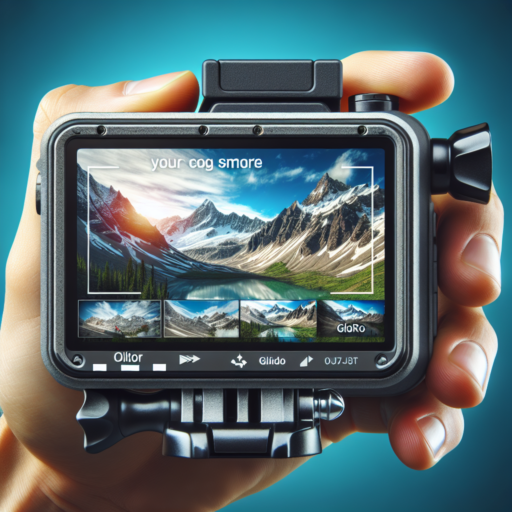Introduction to Fitness Trackers for Small Wrists
Finding the perfect fitness tracker for small wrists can be a challenge. With the vast market of wearable technology, many fitness enthusiasts with smaller wrists struggle to find a device that is both comfortable and functional. This introduction aims to shed light on the key features to look for and the benefits of selecting a fitness tracker tailored to smaller wrists.
First and foremost, it’s essential to consider the comfort and the fit of the fitness tracker. Devices designed for smaller wrists should offer adjustable bands and a slim profile to ensure they do not slide or pinch during exercise. This ensures that the device is not only comfortable to wear all day but also accurate in tracking your activities.
Moreover, these specialized fitness trackers often come packed with all the advanced features found in larger models. From heart rate monitoring to sleep tracking, GPS capabilities, and detailed workout analytics, there’s no need to compromise on functionality. The aim is to offer a seamless integration of technology into your fitness regime, enhancing your ability to track progress and achieve goals without the bulk and discomfort of larger devices.
Top 5 Fitness Trackers Ideal for Small Wrists in 2023
Finding the perfect fitness tracker for small wrists can often feel like searching for a needle in a haystack. It’s not just about the activity tracking capabilities or battery life; it’s also about the comfort and fit on smaller wrists. In 2023, technology brands have honed in on this demand, producing sleek and powerful devices that offer both functionality and a snug fit. This article delves into the top 5 fitness trackers that are ideally suited for individuals with small wrists looking to enhance their fitness journey.
1. Garmin Forerunner 45S
The Garan Forerunner 45S is designed specifically for smaller wrists, offering advanced running dynamics, customizable workouts, and a heart rate monitor. Its slim profile and comfortable fit make it a great choice for daily wear and rigorous training sessions alike.
2. Fitbit Inspire 2
With its sleek and minimalist design, the Fitbit Inspire 2 is perfect for those who prefer a stylish yet functional fitness tracker. It not only tracks your daily activities and sleep patterns but also offers a 10-day battery life, making it a reliable companion for continuous fitness tracking.
3. Samsung Galaxy Fit 2
The Samsung Galaxy Fit 2 stands out for its vibrant AMOLED display and lightweight design, offering comfort without compromising on features. It provides comprehensive fitness and wellness tracking, including stress monitoring and sleep analysis, tailor-made for individuals with small wrists.
How to Choose the Perfect Fitness Tracker for Small Wrists
Choosing the perfect fitness tracker for small wrists requires considering several crucial factors that ensure comfort, accuracy, and the overall user experience. Fitness trackers have become indispensable companions for those embarking on a journey towards better health, but not all devices cater to the diversity of wrist sizes. Fortunately, by focusing on some key aspects, you can find a device that fits perfectly and meets your health tracking needs.
Consider the Design and Size of the Device
First and foremost, the design and size of the fitness tracker are pivotal. For small wrists, look for slim, lightweight models that won’t feel bulky or cumbersome. Many brands offer devices specifically designed for smaller frames, featuring narrow bands and compact faces. Opt for adjustable bands made of soft, flexible materials that can snugly and comfortably fit around smaller wrists.
Check for Adjustable Features and Customizable Interfaces
Another important aspect is the adjustability of the fitness tracker. A device with customizable watch faces and adjustable alert vibrations can enhance the user experience for individuals with small wrists. It’s essential to choose a fitness tracker that offers a range of settings to control the intensity and size of the notifications, ensuring they are not too overwhelming for the wearer.
The search for the perfect fitness tracker for small wrists might seem daunting at first. However, by focusing on the device’s design and size, and ensuring it offers adjustable features suited to your personal preference, you can find a tracker that not only fits perfectly but also becomes a valuable tool in your health and fitness journey.
Benefits of Using a Fitness Tracker Designed for Small Wrists
Certainly, understanding the benefits of using a fitness tracker specifically designed for small wrists can ensure that users get the most personalized and accurate fitness monitoring experience. Many fitness trackers are available on the market, but finding one that fits snugly and comfortably on a smaller wrist while providing accurate data can be a game-churcher.
One of the primary benefits is the enhanced comfort and fit. A tracker that is designed for small wrists is less likely to slide around during daily activities or vigorous workouts. This stability not only prevents skin irritation or discomfort but also ensures more accurate tracking of movements and heart rate. When a fitness tracker maintains close contact with your skin, it can monitor your heart rate more accurately, leading to better data on your physical activities and health.
Another significant advantage is the increased accuracy in health monitoring. Fitness trackers for small wrists are specifically calibrated to take into account the wearer’s physical dimensions. This specificity can lead to more accurate data collection, from step counting to more complex health metrics like sleep patterns and oxygen levels. Accurate data is crucial for setting achievable health goals and tracking your progress towards them.
Furthermore, the availability of fitness trackers for smaller wrists means that users have access to a wide range of stylish options without sacrificing functionality. Despite their compact size, these trackers still come packed with all the features expected from a modern fitness tracker, including smartphone notifications, waterproof design, and a variety of fitness monitoring tools. This ensures that users do not have to compromise on aesthetics or functionality, making their fitness journey more enjoyable and personalized.
Comparing Fitness Trackers for Small Wrists: Features to Consider
When delving into the vast market of fitness trackers, individuals with small wrists might find the selection process slightly cumbersome. The challenge lies not just in the aesthetics or the fit but also in ensuring the features meet their specific fitness tracking needs. Identifying the right mix of functionality and comfort is key to finding the perfect device.
Adjustable Strap Design and Comfort
A critical aspect to consider is the design of the strap. For those with smaller wrists, fitness trackers with adjustable straps offer a snug fit, eliminating the discomfort of a loose device that can skew tracking accuracy. Conversely, a tracker too tight could hinder blood flow. Therefore, looking for options with bands made from soft, flexible materials like silicone or fabric can provide both the necessary adjustability and comfort for prolonged wear.
Sensor Accuracy and Type
Equally important is the device’s sensor accuracy. Heart rate monitors, step counters, and sleep trackers must be precise to provide valuable insights. Yet, smaller devices may compromise on the size and quality of their sensors. It is crucial to read reviews or test devices (when possible) focusing on their performance specifically in individuals with smaller wrists. This ensures the data collected is both reliable and actionable.
Moreover, the types of activities you wish to track influence the choice of fitness tracker. For instance, if you’re into swimming, looking for a water-resistant model with stroke detection capability might be important. Similarly, for avid runners, choosing a device with a built-in GPS could provide more accurate distance and pace tracking. This tailored approach ensures that the fitness tracker not only fits well but also aligns with your fitness goals and lifestyle.
User Reviews: Best Experiences with Fitness Trackers for Small Wrists
Exploring the various options for fitness trackers can be daunting, especially for individuals with small wrists. User reviews often shed light on this specific challenge, highlighting fitness trackers that offer comfort, style, and functionality. Many users emphasize the importance of a snug fit to ensure accurate tracking of activities, sleep, and heart rate, which is crucial for effective fitness monitoring.
Among the most praised attributes in fitness trackers for small wrists are their lightweight design and adjustable straps. Users often share experiences of how these features contribute to forgetting they’re even wearing a device throughout the day and night. This comfort level seems to be a significant factor in user satisfaction, especially for those engaging in diverse activities ranging from swimming to yoga. Moreover, the minimalistic design aesthetics of some models receive special mention for not feeling bulky or conspicuous on smaller wrists.
Functionality also plays a vital role in user reviews, with many highlighting built-in features like GPS, heart rate monitoring, and waterproof capabilities as their top priorities. Integration with health apps and ease of use are repeatedly mentioned, pointing out how seamless synchronization with smartphones enhances the overall user experience. Users appreciate the motivational push from fitness trackers that offer personalized insights and challenges, bolstering their journey towards health and fitness goals.
Setting Up Your Fitness Tracker for Small Wrists for Optimal Use
When it comes to optimizing the use of a fitness tracker, especially for those with small wrists, the setup process plays a pivotal role. Proper installation and configuration can significantly enhance the comfort and accuracy of the data tracked. For individuals with smaller wrists, finetuning the device settings to ensure a snug, yet comfortable fit is essential. This not only improves the device’s capability to monitor fitness metrics accurately but also prevents potential skin irritation due to a too-tight fit or constant movement of the tracker.
Finding the Perfect Fit
First and foremost, adjusting the band of your fitness tracker is crucial for small wrists. Look for bands that offer a wide range of adjustability. Many fitness trackers come with smaller bands or offer them as accessories specifically designed for petite wrist sizes. Adjusting the band to a notch that feels snug but not overly tight is important; a good rule of thumb is ensuring you can slide a finger under the band comfortably.
Adjusting the Settings for Accuracy
After achieving the perfect fit, delve into your device’s settings to optimize its tracking accuracy. Many fitness trackers allow users to input personal information such as weight, height, and stride length. For those with small wrists, adjusting the grip sensitivity might be necessary, as the standard settings might not account for the smaller contact with the skin. This ensures that the device records your movements and heart rate more precisely, leading to more accurate fitness data.
In conclusion, setting up your fitness tracker properly for a small wrist is a simple yet effective measure to enhance your fitness journey. By ensuring the tracker fits comfortably and tweaking the settings for better accuracy, you’ll be able to gather more reliable data to help achieve your health and fitness goals.
Fitness Tracker Maintenance Tips for Longevity
Maintaining your fitness tracker in top condition can greatly extend its lifespan and ensure it continues to provide accurate readings. The following tips provide straightforward yet effective strategies to keep your device functioning optimally.
Cleaning Your Tracker Regularly
Regular cleaning is essential for keeping your fitness tracker free of dirt, sweat, and oils that can accumulate during daily use. Use a soft, lint-free cloth slightly dampened with fresh water to gently wipe down the band and sensor areas. For devices that are not water-resistant, be extremely careful to avoid moisture near any openings. It’s also important to dry your band thoroughly after workouts or exposure to moisture. Avoid using any harsh cleaning agents, as these can damage the device’s materials or cause irritation on your skin.
Software and Firmware Updates
Keeping the tracker’s software and firmware up to date is crucial for both functionality and longevity. Manufacturers often release updates that enhance the device’s accuracy, extend battery life, and introduce new features. Ensure you regularly check for updates in the manufacturer’s app or website and install them promptly. This simple step can significantly improve your fitness tracker’s performance and extend its usable life.
Avoiding Extreme Temperatures
Exposure to extreme temperatures can negatively affect your fitness tracker’s battery and display. Avoid leaving your device in direct sunlight for prolonged periods, especially in hot cars where temperatures can quickly escalate. Similarly, very cold temperatures can reduce battery efficiency and potentially damage the liquid crystal display (LCD). Whenever possible, keep your tracker stored in a moderate and stable temperature environment to avoid these risks.
Frequently Asked Questions About Fitness Trackers for Small Wrists
Finding the perfect fitness tracker for small wrists can often pose a challenge, with various models and features to consider. This has led to a range of commonly asked questions, as individuals seek to find devices that not only fit well but also cater to their health and fitness tracking needs effectively.
What Features Should I Look For in a Fitness Tracker for Small Wrists?
When searching for a fitness tracker suitable for small wrists, it’s essential to consider both comfort and functionality. Look for slim, lightweight designs that offer adjustable bands to ensure a snug fit. Key features to keep an eye out for include heart rate monitoring, sleep tracking, step counting, and waterproof capabilities. Additionally, a fitness tracker with a customizable interface can be beneficial, allowing you to focus on the metrics that matter most to you.
Are There Specific Brands known for Catering to Small Wrists?
Several brands stand out for their commitment to accommodating smaller wrist sizes without compromising on functionality. Notable names include Fitbit, Garmin, and Xiaomi, each offering models designed with slim profiles and adjustable straps or bands. These brands frequently incorporate the latest technology in their devices, ensuring that users with small wrists do not have to miss out on advanced fitness tracking features.
In conclusion, navigating the selection of fitness trackers for small wrists involves considering both comfort and the range of available features. By focusing on key functionalities and opting for brands known for their inclusive sizing, individuals can find a fitness tracker that fits both their wrist and their lifestyle perfectly.
Conclusion: Finding Your Ideal Fitness Tracker for Small Wrists
Finding the perfect fitness tracker for small wrists might initially seem like a daunting task, given the multitude of options available in the market. However, focusing on key features that cater to comfort, functionality, and style can significantly narrow down your choices. It’s essential to prioritize devices that offer adjustable band sizes, lightweight designs, and sleek profiles to ensure a comfortable fit throughout the day. Moreover, seeking out models that do not compromise on functionality, by retaining essential tracking capabilities such as heart rate monitoring, step counting, and sleep analysis, is crucial for maintaining an effective fitness regimen.
Exploring user reviews and rating systems can also provide valuable insights into how a device performs in real-world scenarios, especially for those with smaller wrists. Engaging with community forums or seeking recommendations from friends can further aid in highlighting models that are well-suited to your specific needs and preferences. Remember, a well-fitting tracker is more likely to be worn consistently, thereby providing more reliable data to help you achieve your fitness goals.
In an era where technology and fashion often intersect, opting for a fitness tracker that complements your personal style while keeping up with your active lifestyle is equally important. Brands have become increasingly aware of the aesthetic aspects of their devices, offering a range of colors, materials, and interchangeable bands to choose from. Whether your preference leans towards a minimalist design or a more eye-catching piece, there is likely a fitness tracker out there that meets both your functional needs and stylistic preferences.









